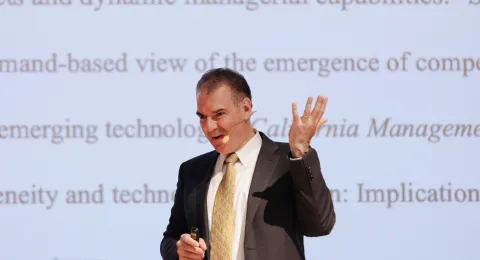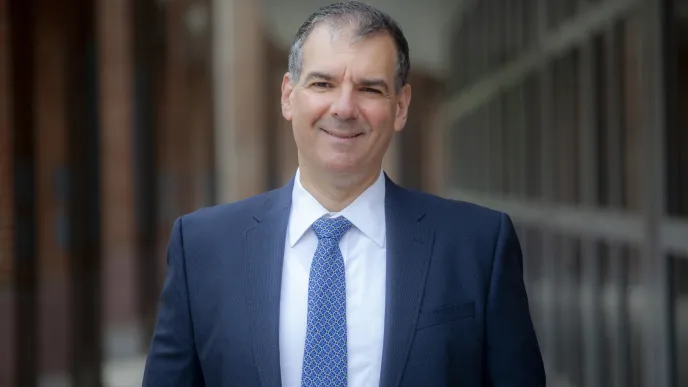In today's global economy, a growing divide between major economic blocs has led to increased protectionism and regulatory complexities. These economic rifts impact not only trade but also the broader allocation of resources, often resulting in regional disparities and market distortions.
“I think the job of a manager of a multinational company has become much more complex because of the global picture and the intensive pressures on them from the market, from the government and from civil society. So, I think a lot of managers really earn their money,” says Professor Peter Buckley from Alliance Manchester Business School, UK.
One big challenge is creating long-term business strategies in the face of frequent political shifts and growing polarization.
“The market is, in a way, in a disrupted state. There’s a fracture in the global economy, a Chinese camp and an American led camp, and the question where Europe fits into that. I think all the trade distortions and the so-called industrial and security policies have a massive impact.”
The state and future of the global economy were discussed at a ceremony held in Helsinki in September, celebrating the latest recipient of the Viipuri Prize, Ron Adner from the Tuck School of Business, Dartmouth, USA.
In addition to Adner, the panel discussion included previous award-winners, Constance E. Helfat, also from the Tuck School of Business, and Professor Peter Buckley, alongside Teresa Kemppi-Vasama, chair of the board at Kemppi and LUT University.
Key takeaways from the discussion:
1 The rise of protectionism and regulatory challenges
New industries, such as green technology and sustainable business models, are creating opportunities for growth. Entrepreneurs are increasingly focusing on local production, reshoring, and investing in capabilities that align with national priorities. For instance, the U.S. semiconductor initiative aims to boost domestic production, highlighting the shift towards self-reliance in critical industries.
This environment creates a challenging landscape for businesses, particularly those looking to expand internationally. Compliance with local regulations has become a significant hurdle, especially in markets where strict standards often act as hidden protectionist barriers.
“The US is tricky for us, as it has a lot of regulation and protectionism – from our point of view.
We entrepreneurs always have to evaluate whether we have the recourses to export or expand our businesses to countries that require significant effort to meet requirements, regulations, and standards,” says Kemppi-Vasama.
Kempower, a subsidiary of Kemppi Group Oy, opened a US production facility for electric vehicle fast chargers in Durham, North Carolina, in June. According to Kemppi-Vasama, it is in many ways a great business opportunity and market for vehicles such as e-trucks, but not very coordinated at the moment.
“We chose to build a factory in the US because we want to serve the market in the best possible way and to comply with Made in USA Act. You have to apply for many local certifications. It requires a lot of R&D and education,” Kemppi-Vasama adds.
Professor Adner replies that in addition to production of technology, there's also the ecosystem and the variance of that structure, the actors, the regulations, and those links in the picture some ways set the boundary of the ecosystem.
“I would argue that you need to figure out strategy on an ecosystem-by-ecosystem basis.
You need both your traditional version of an entry strategy, and then you want to know the coordinated layers or the ecosystem strategy.
For me, dealing with protectionism, comes down to the question how you build your entry strategy to work within the constraints.”
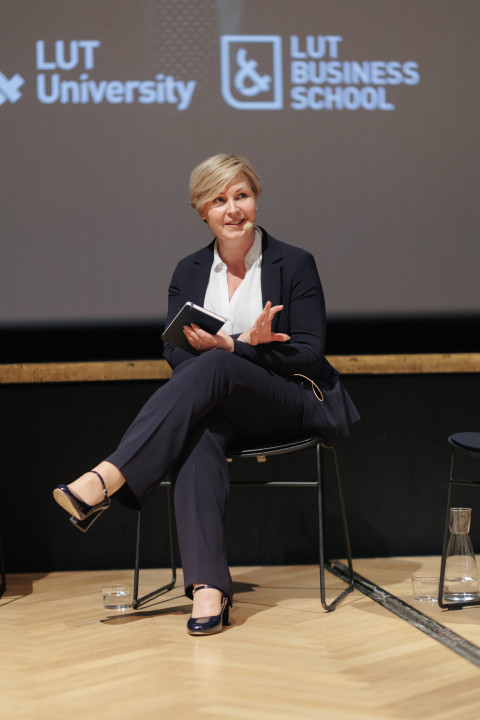
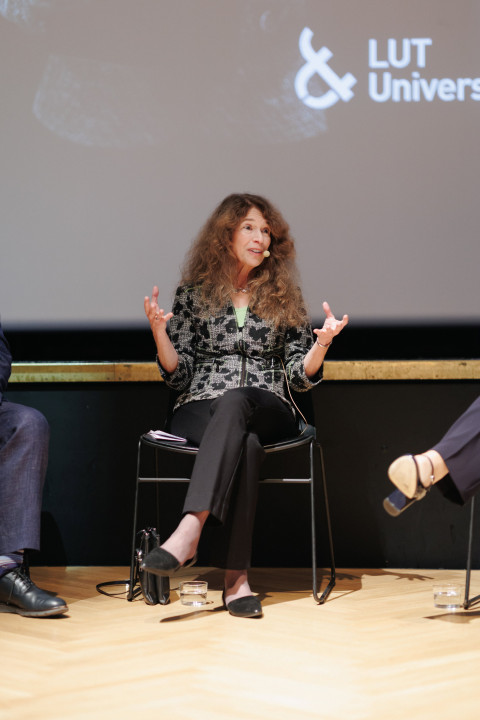
2 Political influences on workforce mobility and recruitment
Political polarization and shifting geopolitical dynamics also have a profound impact on workforce mobility and recruitment. The alignment of political views within companies can influence hiring decisions and exacerbate internal divisions.
Research shows that companies often skew towards one political affiliation, which can lead to a lack of diversity in thought and decision-making.
“Companies tend to hire people with similar affiliations, making them even more partisan within the company. As we know, inside of companies, people interact with people like themselves. In addition, job-seekers tend to choose their workplace if the organization shares the same values and political views,” notes Professor Helfat.
Moreover, the political landscape can affect global talent movement and cross-border recruitment. Restrictions on immigration and varying labor regulations complicate efforts to attract and retain diverse talent pools.
“The political affiliations of employees and the locations of companies create echo chambers within firms, making it harder to diversify. So, the echo chambers are not coming only from social media,” says Helfat.
This dynamic presents a significant challenge for businesses striving to build resilient, innovative teams capable of navigating the complexities of the modern global economy.
“This is something leaders should think about. How could we change?”
3 China’s complex role in the global economy
China's evolving economic strategy was a recurrent theme, highlighting both its strengths and internal challenges. The country’s massive investment in capabilities and its strategic push through initiatives – like the Belt and Road – were seen as efforts to expand influence.
China's Belt and Road Initiative (BRI, also known as the "Silk Road Economic Belt or the 21st Century Maritime Silk Road") is a vast global infrastructure and investment project launched by China in 2013. The initiative aims to enhance economic cooperation and strengthen trade relations between Asia, Africa, Europe, and other regions by constructing large-scale infrastructure projects such as roads, railways, ports, and energy and communication networks.
“There’s a big thing out there that is coming to us and it's called China. For example, I’m not sure if the European way for regulation is really the right way forward.
We want to think that European regulation is going to be better than anybody else’s. Well, is it? You have to put an enormous amount of faith in the European Commission and it’s knowledge and capability to react to future challenges like China,” says Professor Buckley.
“Of course, I’m coming from a country that exited the EU… But can we really assure people that our system in Europe is better than the Chinese one? I think when you look at China from the outside, there's a lot of demonization. I mean, China has lifted about 500 million people out of poverty.”
Buckley adds that he’s extremely worried about Russia becoming a client state of China – a raw material and low-level supplier to it.
However, the panel also acknowledged China’s internal economic issues, such as high debt levels, demographic challenges, and slowing growth.
“China has all the capacity in the world, but it’s also dealing with significant internal challenges,” Professor Buckley points out, emphasizing the need for a nuanced understanding of the country’s global role.
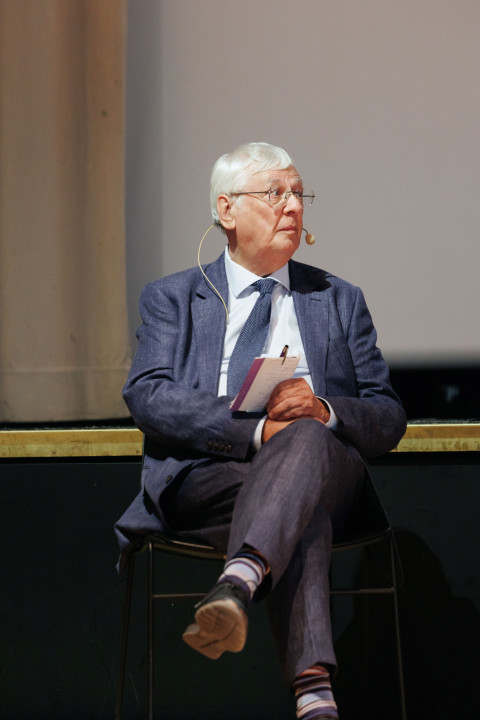

4 Resilience and adaptation in times of crisis
The discussion also celebrated the resilience and adaptability of global businesses in the face of crises such as the COVID-19 pandemic and the war in Ukraine. Despite these challenges, companies have shown remarkable flexibility, finding new ways to operate and thrive. The ability to adapt quickly to changing conditions has been a key factor in sustaining economic activity.
“By and large, companies have become more aware of risks and now collaborate more with various societal actors,” observes Teresa-Kemppi Vasama.
Professor Adner adds that the complex world presents challenges but also offers opportunities for companies. He points out that even in Ukraine, new businesses are being established despite parts of the country being destroyed.
One example of this is the family-owned company Peikko Group from Lahti, Finland, which is opening a new factory in Ukraine at the beginning of 2025.
"Such optimism is important. There are still reasons to get up in the morning and create new things," says Adner.
Helfat also agrees that we cannot think about the future only in terms of reduction and cutting back.
"People will continue to use energy, for example. We cannot stop them from doing so. We need to come up with more new technological solutions to find environmentally friendly ways to live on this planet."
Professor Adner sees that universities are playing a unique role in future development.
“Universities are a neutral venue for industry. Talking to regulators about the direction of the future is always very tricky – mostly for the regulators. I think there’s a more vital role for universities in being not just participants in the research, but in being venues to align the ecosystem.”

